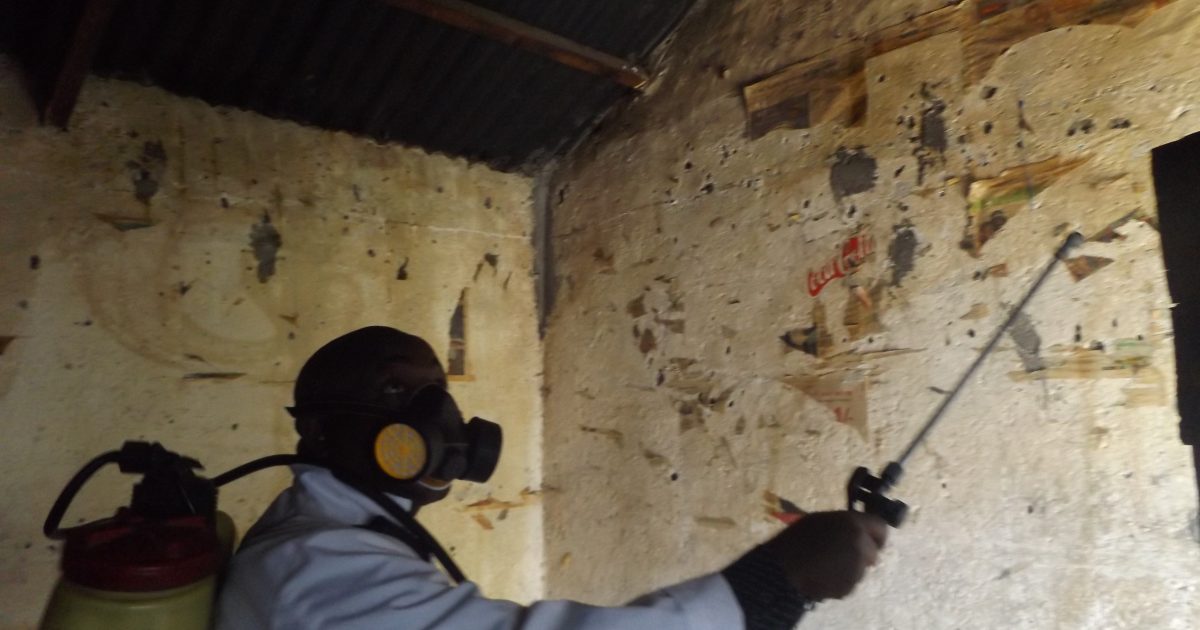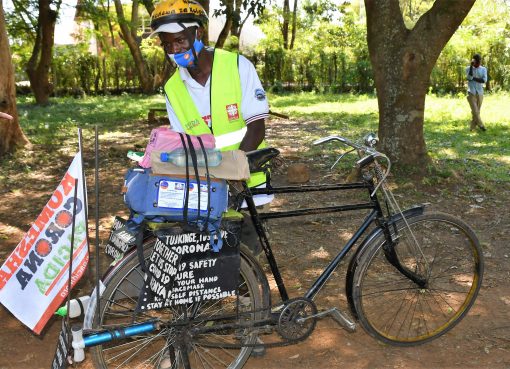The county government of Nakuru is working with experts from the private sector to provide a permanent solution to the bed bug and sand fly menace that has afflicted three sub-counties, keeping residents awake at night.
The Devolved unit’s Public Health Officer, Dr. Elizabeth Kiptoo said the county has declared total war on bedbugs which have been causing major discomfort in Rhonda, Hilton, Kaptembwa and Mwariki estates within Nakuru Town West County.
The unwelcome visitors have also become household stuff in Flamingo, Lake View, Bondeni, lower Shabaab and Kivumbini residential areas in Nakuru Town East Sub-County.
Medical experts indicate that bedbug bites cause infections and damage the skin, leaving victims with itchy skin, darkened patches or spots.
The County Public Health Officer who spoke during a training of public health officers on effective elimination of bedbugs and sand-fly menace in Nakuru Town West/East, and Gilgil sub counties said residents of Eburru-Mbaruk Ward in Gilgil Sub-County were being tormented by the irritating sand-fly whose bite causes the protozoan skin disease known as Cutaneous Leishmaniasis
“The disease manifests itself in a lesion or a small wound on the skin but it keeps on widening with the infected person feeling itchy and scratching continuously. This disease starts as a pimple with some rashes and after about two weeks the pimple bursts and a wound starts and it keeps on widening as the days go by leaving nasty features on the skin. In most cases it affects the face and that reduces the self-esteem of the infected people,’’ she said.
Dr. Kiptoo stated that 1,700 households in Nakuru Town East Sub-County have been mapped for spraying to ensure the bugs do not become unmanageable, while a further 300 homes are targeted for the same in Nakuru Town West Sub-County. So far the devolved unit has sprayed 808 households in Nakuru Town East at a cost of Sh.700, 000.
On the sand fly threat, the official said 1,200 households would be fumigated in Gilgil Sub-County. The sand fly, according to Public Health Chief Officer, Dr. Samuel King’ori, inhabits the warmer bushes, forests, burrows, caves and even dumpsites. The insect is also found in Utut forest, Kampi Turkana, Ol-jorai and Gitare, all within Gilgil Constituency.
“The fly is so tiny that it can go through a mosquito net and it takes quite some time before the symptoms such as raised lesions manifest themselves,” Dr. King’ori observed.
“Seeking to curb its effect in Gilgil Constituency, the county government has also erected trapping nets in the affected areas. Dr. King’ori further said they are currently mapping areas with high concentration of the fly. We have also involved Kenya Medical Research Institute in efforts to find a way of breaking the fly’s lifecycle,” he said.
The public health chief officer explained that the warm weather in Nakuru Town East and Nakuru Town West Sub-Counties also favours the breeding of the bugs. “Once they infest your premises, they are difficult to control. They are in your clothes, seats, mattress and even cars,” noted Dr. King’ori.
Eric Njogu from Green life Kenya, one of the partners in the venture said the collaboration will bring on board experienced pest control professionals to do the work and to educate the community on how to observe cleanliness and to be safe from infestation.
“Getting rid of the insects requires chemical treatments. It is important to use products that can be used safely in bedrooms because some insecticides are very harmful,” he said.
Njogu cited poor hygiene, spread of the pest through ventilation ducts, clothes, luggage, and furniture and growing resistance to insecticides as some of the factors that continue to favour the bedbugs.
A survey commissioned by the devolved unit that sampled 800 households revealed that 52 percent of them were afflicted with bed bugs.
Residents interviewed said the pesticides in the market known to fight the menace are very expensive and that they could not afford.
“If we had the money, we would have sprayed our homes but the chemicals are very expensive. I only have money to feed my family,” said Mr. Daniel Otunge, a resident of Rhonda.
Esther Mokeira from Kaptembwa said she sprays her house every month. “If you are in Nakuru and have never been bitten by bedbugs, then you have not been fully integrated into the county. Bedbugs are in almost every household and have become difficult to eradicate,” Ms Mokeira said.
Otunge said that spraying the bedbugs has not been effective because each household fumigates at different times, giving the insects time to move from one house to another. “If you fumigate your house and your neighbour does not, the bedbugs will most likely infest your place again. In houses without ceiling boards, the insects just crawl to the next room,” Mr Otunge added. Bondeni residents have similar narratives. “They attack at night, so we can’t sleep, or at times we sleep in turns,” said Mohammed Kassim.
Kassim stated that he was forced to apply several techniques over a long period of time to rid his house off the pests.
“I would pour hot water on the bed and put the bedding out on the hot sun every day for a month. I also bought a pesticide from one of the agro-vet shops in town which I sprayed thrice a week before going to work in the morning,” Kassim said.
“Dealing with bedbugs is an expensive affair and one has to pay over Sh.1, 000 for their houses to be sprayed with insecticides. The houses should be sprayed at least three times after a 14-day period to ensure complete eradication,” Kimani said.
Dr, King’ori advised on the importance of spraying insecticide frequently.
To prevent a full-blown infestation, medical experts advise on the use of quality pesticides and the user to be educated on the usage of the pesticide.
By Anne Mwale





